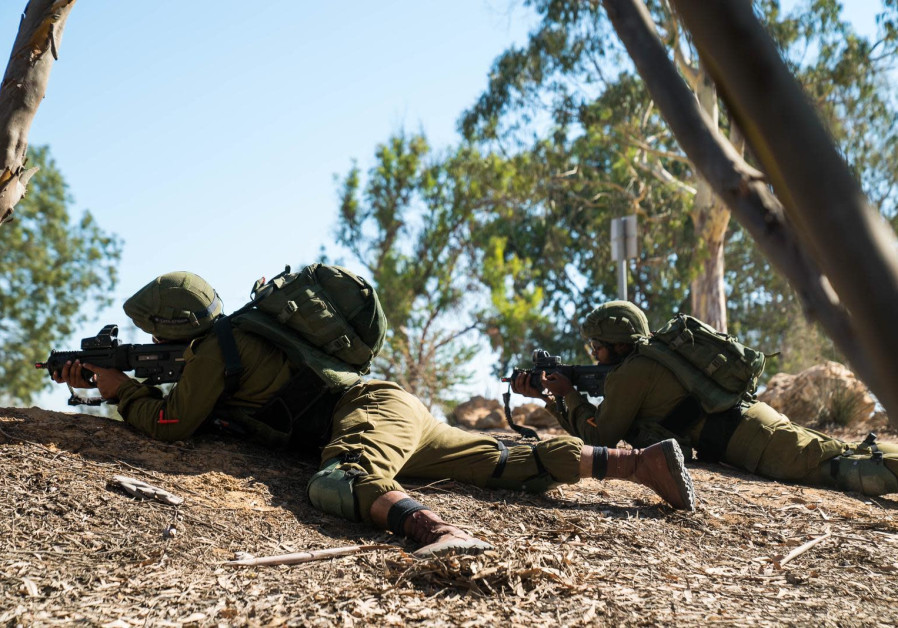IDF cancels drills for reservists over budget problems

IDF solders of the Southern Command take part in a drill . (photo credit: IDF)
The IDF has cancelled the training of various reserve divisions, including elite Ground Forces and in the Northern Command, due to budgetary concerns.
According to a report in Haaretz, senior reserve officers were informed on Monday that division drills for combat on the southern and northern fronts have been cancelled until the end of the year.
The absence of a budget plan due to the lack of a government, as well as decisions made by IDF Chief of Staff Lt.-Gen. Aviv Kochavi when he entered office at the beginning of the year, led to the cancellations.
The report stated that in recent weeks, the head of the Ground Forces reviewed the training budget for the year and found that the decisions made by Kochavi had not been taken into account in the existing budget – which is due to expire in 2020 – and led to overspending.
As a result, the Ground Forces command had to cancel drills for units that they assume would not be affected in their preparedness for war. According to Haaretz, the cancellation affected around six percent of military drills, mostly for reservists.
The cancellation is expected to save tens of millions of shekels, which will be allocated to higher priority concerns, such as the acquisition of additional combat capabilities for ground units, preparations for a military campaign in the Gaza Strip, and additional exercises in the South that had not been included in the annual training schedule.
One senior officer who serves in the North told Haaretz that the cancellation of the drill could have a major negative effect on the military’s readiness for war with Hezbollah.
“In recent years, we’ve been preparing for significant scenarios that could develop in the North, and a year without a significant exercise that would link the forces could gravely affect the army’s readiness for the next battle,” he was quoted as saying.
The military recently shared details of the upcoming new multi-year plan currently being formulated by Kochavi, which will focus on the preparedness of troops for a future war, and reportedly will preserve the increased training which was implemented under the Gideon multi-year plan.
Last year, the IDF returned to 17 weeks of consecutive training before 17 weeks of operational deployment for the first time since the Second Intifada.
While the defense establishment does not foresee any conflict breaking out in the near future, tensions have risen on both the northern or southern fronts.
In the North, the threat posed by Iranian entrenchment in Syria and the continued weapons smuggling for its proxy terrorist group Hezbollah in Lebanon has led to significant concerns for Israel.
Five years after the last conflict with Hamas in the Gaza Strip, the Sunni terror group has once again grown close to Tehran; nine rounds of violent confrontation between Israel and terrorist groups in the Strip has killed five Israeli civilians and one IDF soldier.
The weekly violent demonstrations along the border fence and the recent infiltrations by armed Palestinian militants into Israel has also posed a major threat to troops deployed along the border.
`; document.getElementById(“linkPremium”).innerHTML = cont; (function (v, i){ });





Comments are closed.